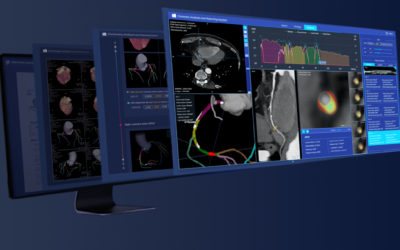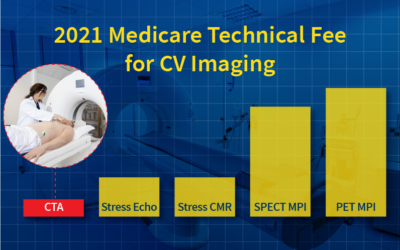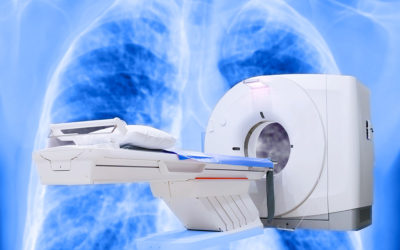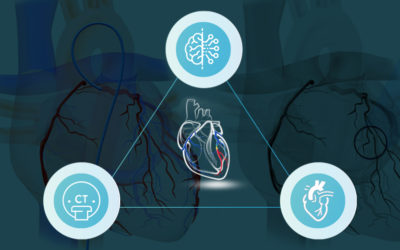What’s the future of health data interoperability using FHIR?
The future of health data interoperability using FHIR. ONC’s Micky Tripathi provided his perspective at a recent Cambia Grove forum.
Can AI Help Improve Atherosclerotic Plaque Quantification?
Artificial intelligence and other advanced informatics could be applied to coronary CTA images to unlock valuable information on atherosclerotic plaque characteristics that could be used to personalize care decisions. Learn more.
Medical Imaging AI Fee-for-Service and the Transition to Value-Based Care
Learn more about the encouraging recent developments in the use of targeted fee-for-service models as a transition strategy to ensure that patients have access to proven advanced diagnostics and treatments.
Coronary CTA Reimbursement: Opportunities & Challenges
Examine the current challenges for coronary CTA reimbursement, the potential effects it will have on patient care, and what medical imagers can do to help improve reimbursement moving forward.
6 Must-Read Articles on AI in Cardiovascular Imaging
Artificial intelligence has made its way into nearly every aspect of cardiovascular imaging. Learn more about six must-read articles on cardiovascular imaging AI that provide insight into the many ways AI can improve care delivery.
AI-assisted Opportunistic Screening for Population Health
Recent research demonstrates that deep learning could facilitate opportunistic screening and allow for earlier prevention and management of patients with cardiovascular disease. Learn more about the present opportunities.
Restructuring the Smart Hospital: Key Considerations in 2021
The concept of a Smart Hospital is evolving in 2021. Read how new hospital construction can anticipate climate change, decentralization of care delivery, and advances in medical science.
Deep Learning-based CT-FFR: A Gatekeeper to the Cath Lab
Deep learning-based CT-FFR has demonstrated potential in improving the diagnosis of patients with coronary artery disease. Learn more about how deep learning-based CT-FFR can help improve patient outcomes in this introductory guide.
DeepVessel 3D Visualization Processing Software Receives Regulatory Approval in China
Keya Medical has received regulatory approval in China for its DeepVessel 3D Visualization Processing Software. The AI-based software medical device is designed for visualization reading of multiphase CT images and 3D models.
Deep Learning-based CT-FFR Reduces the Need for Invasive Coronary Angiography
A new study conducted by researchers at the First Affiliated Hospital of Jinan University demonstrates that deep learning-based CT-FFR (DL-CTFFR) can reduce the need for invasive coronary angiography (ICA) and improve outcomes in patients with stable coronary artery disease (CAD).
Coronary CTA Guidelines, Evidence, & Recommendations
Evidence is building in support of a coronary CTA-first strategy for evaluating patients with stable coronary artery disease. Learn more about the current evidence, guidelines, and recommendations.
The Value of Deep Learning-based CT-FFR in Detecting Coronary Stenosis & Predicting Outcomes
Researchers at Fuwai Hospital conducted a retrospective study to evaluate the performance of Keya Medical’s deep learning-based CT-FFR product in detecting hemodynamic changes in stenosis.


Intended for the U.S. market only. Not for EU promotional use.












